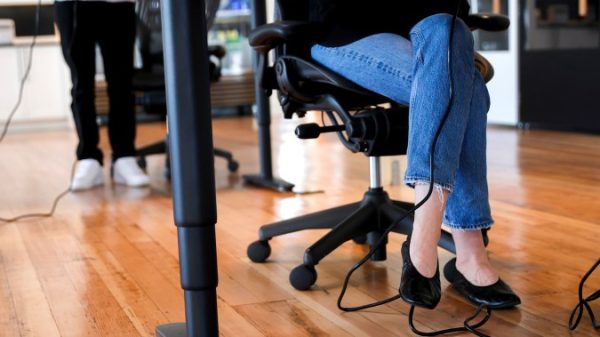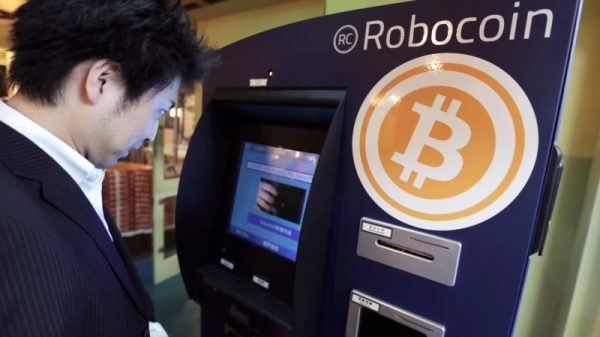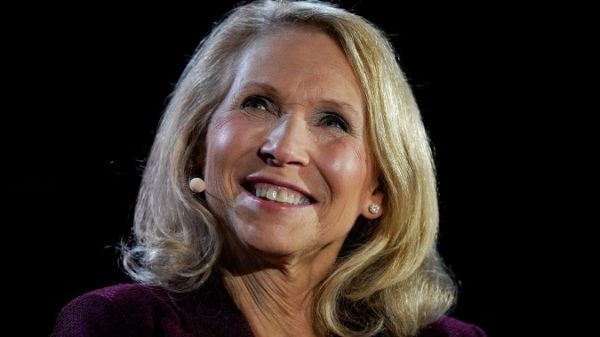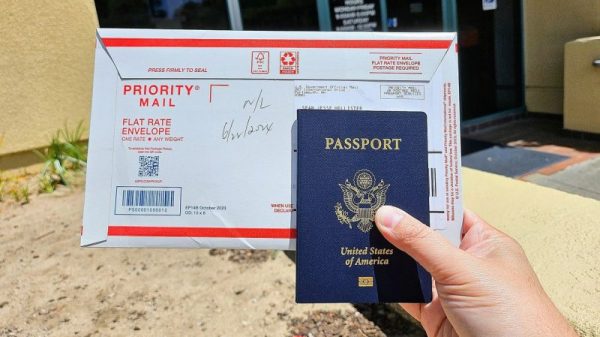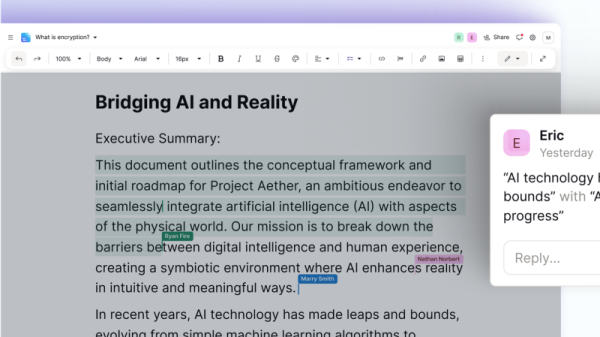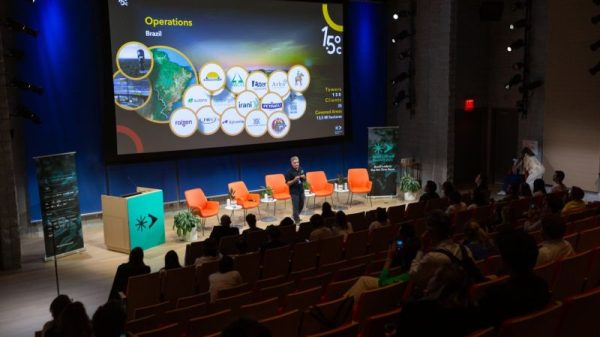Robert F. Kennedy Jr., a member of the storied political family who is making a long-shot Democratic presidential bid, was bolstered by Republicans at a hearing Thursday on Capitol Hill while lawmakers from his own party sought to tear him down, citing his history of espousing conspiracy theories and making racist and antisemitic statements.
Kennedy, who at times has been banned by social media companies for spreading misinformation on vaccines, was among the panelists invited by Republicans on the Judiciary Committee’s Subcommittee on the Weaponization of the Federal Government for a hearing ostensibly on censorship. The hours-long affair frequently devolved into Democrats attacking Kennedy while Republicans defended their decision to give a prominent platform to a rival of President Biden.
“It’s why Mr. Kennedy is running for president — to help us expose and stop what’s going on,” Rep. Jim Jordan (R-Ohio), the panel’s chairman, said in his opening remarks, citing an instance in which the White House asked Twitter to remove a race-based post from Kennedy about coronavirus vaccines.
Del. Stacey Plaskett (Virgin Islands), the top Democrat on the panel, used her opening statement to recount several controversies Kennedy has generated, including his recent suggestion that the coronavirus could have been “ethnically targeted” to spare Ashkenazi Jews and Chinese people.
Republicans “intentionally chose to elevate this rhetoric to give these harmful, dangerous views a platform in the halls of the United States Congress,” Plaskett said. “There’s no doubt as to why they’re making the choice. It’s not to guard free speech or to ensure equality for all. All of this … is to show us by their conduct, over and over again, that any attack on Joe Biden to get Donald Trump back in the White House is what they need to do.”
The hearing had several pointed exchanges.
Democrats cited several past statements by Kennedy, including an episode in early 2022 in which he invoked Anne Frank to suggest Jews had more freedoms during the Holocaust than Americans who were choosing not to get vaccinated. Frank died in a Nazi concentration camp after hiding with her family in a secret annex in an Amsterdam house for two years.
Kennedy apologized for his comments shortly after making them, but during Thursday’s hearing, he responded angrily when Rep. Debbie Wasserman Schultz (D-Fla.) asked him whether stood by what he had said.
“Congressman, what you are saying is a lie,” Kennedy said.
“I’m a congresswoman,” Wasserman Schultz said before cutting Kennedy off.
Kennedy, the son of Sen. Robert F. Kennedy and the nephew of President John F. Kennedy, sought to defend himself, saying that Democrats were smearing him and contending that the media and others mischaracterized many controversial things he had previously said.
“If the views that you and others have applied to me, have attributed to me, were actually true, I can see why I shouldn’t be able to testify here today,” Kennedy said.
While Kennedy is a distant second to Biden in Democratic primary polling, any better-than-expected showings in early nominating states could serve to embarrass the incumbent president — a prospect Republicans appear to relish.
Underscoring the political nature of the hearing, the other Republican-invited witnesses were Emma-Jo Morris, a journalist now at Breitbart News who wrote extensively on Hunter Biden’s laptop for the New York Post; and D. John Sauer, a special assistant attorney general at the Louisiana Justice Department involved in a lawsuit that seeks to halt the Biden administration from working with social media companies to monitor misinformation.
Another witness, Maya Wiley, the president and chief executive of the Leadership Conference on Civil and Human Rights, was called on frequently by Democrats, who invited her, to rebut Kennedy’s assertions.
Democrats had urged Jordan not to invite Kennedy to testify — a call House Speaker Kevin McCarthy (R-Calif.) rejected this week even after Kennedy’s comments that the coronavirus could have been bioengineered “to attack Caucasians and Black people.”
“I disagree with everything he said,” McCarthy told reporters at the Capitol. “The hearing that we have this week is about censorship. I don’t think censoring somebody is actually the answer here.”
From the outset, it was clear that Republicans were treating Kennedy differently from other witnesses.
While Jordan provided a brief introduction of the other three witnesses, Rep. Chip Roy (R-Tex.) delivered a fuller statement about Kennedy, touting his past work on the environment and noting that he had met with President Donald Trump about vaccine safety.
Roy also gave a shout-out to Kennedy’s campaign manager, former congressman Dennis J. Kucinich (D-Ohio), who was sitting in the front row of the audience.
Jordan had originally planned to give Kennedy 10 minutes for his opening statement while other witnesses were given five minutes. He relented after Democrats protested.
During his remarks, Kennedy decried a letter sent by Democrats seeking to have him disinvited from testifying.
“I’ve spent my life in this party. I’ve devoted my life to this party,” Kennedy said. “This is an attempt to censor a censorship hearing.”
Throughout the hearing, Democrats sought to undermine Kennedy’s credibility.
“So far as I know, he does not have any specific education or training in medicine,” Rep. Linda T. Sánchez (D-Calif.) said. “He is not an epidemiologist, one who studies infectious diseases. He has never conducted clinical trials in a professional setting. He has never done scientific research in a professional laboratory and published scientific findings in a peer-reviewed publication.”
Robert F. Kennedy Jr., a member of the storied political family who is making a long-shot Democratic presidential bid, was bolstered by Republicans at a hearing Thursday on Capitol Hill while lawmakers from his own party sought to tear him down, citing his history of espousing conspiracy theories and making racist and antisemitic statements.
Kennedy, who at times has been banned by social media companies for spreading misinformation on vaccines, was among the panelists invited by Republicans on the Judiciary Committee’s Subcommittee on the Weaponization of the Federal Government for a hearing ostensibly on censorship. The hours-long affair frequently devolved into Democrats attacking Kennedy while Republicans defended their decision to give a prominent platform to a rival of President Biden.
“It’s why Mr. Kennedy is running for president — to help us expose and stop what’s going on,” Rep. Jim Jordan (R-Ohio), the panel’s chairman, said in his opening remarks, citing an instance in which the White House asked Twitter to remove a race-based post from Kennedy about coronavirus vaccines.
Del. Stacey Plaskett (Virgin Islands), the top Democrat on the panel, used her opening statement to recount several controversies Kennedy has generated, including his recent suggestion that the coronavirus could have been “ethnically targeted” to spare Ashkenazi Jews and Chinese people.
Republicans “intentionally chose to elevate this rhetoric to give these harmful, dangerous views a platform in the halls of the United States Congress,” Plaskett said. “There’s no doubt as to why they’re making the choice. It’s not to guard free speech or to ensure equality for all. All of this … is to show us by their conduct, over and over again, that any attack on Joe Biden to get Donald Trump back in the White House is what they need to do.”
The hearing had several pointed exchanges.
Democrats cited several past statements by Kennedy, including an episode in early 2022 in which he invoked Anne Frank to suggest Jews had more freedoms during the Holocaust than Americans who were choosing not to get vaccinated. Frank died in a Nazi concentration camp after hiding with her family in a secret annex in an Amsterdam house for two years.
Kennedy apologized for his comments shortly after making them, but during Thursday’s hearing, he responded angrily when Rep. Debbie Wasserman Schultz (D-Fla.) asked him whether stood by what he had said.
“Congressman, what you are saying is a lie,” Kennedy said.
“I’m a congresswoman,” Wasserman Schultz said before cutting Kennedy off.
Kennedy, the son of Sen. Robert F. Kennedy and the nephew of President John F. Kennedy, sought to defend himself, saying that Democrats were smearing him and contending that the media and others mischaracterized many controversial things he had previously said.
“If the views that you and others have applied to me, have attributed to me, were actually true, I can see why I shouldn’t be able to testify here today,” Kennedy said.
While Kennedy is a distant second to Biden in Democratic primary polling, any better-than-expected showings in early nominating states could serve to embarrass the incumbent president — a prospect Republicans appear to relish.
Underscoring the political nature of the hearing, the other Republican-invited witnesses were Emma-Jo Morris, a journalist now at Breitbart News who wrote extensively on Hunter Biden’s laptop for the New York Post; and D. John Sauer, a special assistant attorney general at the Louisiana Justice Department involved in a lawsuit that seeks to halt the Biden administration from working with social media companies to monitor misinformation.
Another witness, Maya Wiley, the president and chief executive of the Leadership Conference on Civil and Human Rights, was called on frequently by Democrats, who invited her, to rebut Kennedy’s assertions.
Democrats had urged Jordan not to invite Kennedy to testify — a call House Speaker Kevin McCarthy (R-Calif.) rejected this week even after Kennedy’s comments that the coronavirus could have been bioengineered “to attack Caucasians and Black people.”
“I disagree with everything he said,” McCarthy told reporters at the Capitol. “The hearing that we have this week is about censorship. I don’t think censoring somebody is actually the answer here.”
From the outset, it was clear that Republicans were treating Kennedy differently from other witnesses.
While Jordan provided a brief introduction of the other three witnesses, Rep. Chip Roy (R-Tex.) delivered a fuller statement about Kennedy, touting his past work on the environment and noting that he had met with President Donald Trump about vaccine safety.
Roy also gave a shout-out to Kennedy’s campaign manager, former congressman Dennis J. Kucinich (D-Ohio), who was sitting in the front row of the audience.
Jordan had originally planned to give Kennedy 10 minutes for his opening statement while other witnesses were given five minutes. He relented after Democrats protested.
During his remarks, Kennedy decried a letter sent by Democrats seeking to have him disinvited from testifying.
“I’ve spent my life in this party. I’ve devoted my life to this party,” Kennedy said. “This is an attempt to censor a censorship hearing.”
Throughout the hearing, Democrats sought to undermine Kennedy’s credibility.
“So far as I know, he does not have any specific education or training in medicine,” Rep. Linda T. Sánchez (D-Calif.) said. “He is not an epidemiologist, one who studies infectious diseases. He has never conducted clinical trials in a professional setting. He has never done scientific research in a professional laboratory and published scientific findings in a peer-reviewed publication.”

